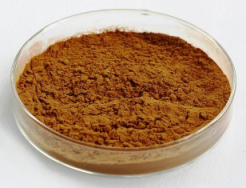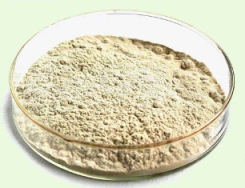 TeanZym contains an “adaptogenic” mixture of fermented herbal compounds including Tean, DSLP, magnolol, and phenolics in a synergistic proprietary formula designed for the modulation of neuroendocrine - immune system.
TeanZym contains an “adaptogenic” mixture of fermented herbal compounds including Tean, DSLP, magnolol, and phenolics in a synergistic proprietary formula designed for the modulation of neuroendocrine - immune system.
Autoimmune disorders result from the combination of several predisposing factors, that include the relationships between epitopes of the trigger agent (i.e. virus) and histocompatibility epitopes (i.e. HLA), the status of the stress response system including the hypothalamic-pituitaryadrenocortical axis (HPA) and the sympathetic nervous system (SNS), as well as the gonadal hormones (hypothalamic-pituitary-gonadal axis = HPG). Therefore, autoimmune disorders such as rheumatoid arthritis (RA), systemic lupus erythematosus (SLE), systemic sclerosis (SSc) and Sjögren’s Syndrome (SS) are inflammatory chronic diseases with very close neuroendocrine pathogenetic mechanisms.
People who have autoimmune disorders often report feeling stressed, overwhelmed, and emotionally drained. Sometimes stress and other emotional problems can actually trigger the symptoms of an autoimmune disorder, causing them to get worse. For this reason, part of your overall autoimmune disorder treatment plan should include taking steps to care for your emotional health. Many people who have autoimmune disorders experience anger, denial, fear, frustration, isolation, depression and anxiety. Emotional problems affect many people who have autoimmune disorders because of the struggle to accept — and adjust to dealing with — a chronic illness. But emotional health can be particularly challenging for people with the following types of autoimmune disorders, because their symptoms are often emotional in nature:
 Mind-body medicine, which is based on psychoneuroimmunology has shown us how the immune system is affected and modulated by feelings, emotions and other nervous system influences. The immune system can also be conditioned to improve its function via the nervous system. Similarly, the immune system can be conditioned and nourished through proper care of the nervous and endocrine systems. Immune responses alter neural and endocrine function, and in turn, neural and endocrine activity modifies immunologic function. Many regulatory peptides and their receptors previously thought to be limited to the brain or the immune system are now known to be expressed by both.
Mind-body medicine, which is based on psychoneuroimmunology has shown us how the immune system is affected and modulated by feelings, emotions and other nervous system influences. The immune system can also be conditioned to improve its function via the nervous system. Similarly, the immune system can be conditioned and nourished through proper care of the nervous and endocrine systems. Immune responses alter neural and endocrine function, and in turn, neural and endocrine activity modifies immunologic function. Many regulatory peptides and their receptors previously thought to be limited to the brain or the immune system are now known to be expressed by both.
The body’s ability to keep a steady homeostatic state is crucial to health and life. During an immune response the brain and the immune system “talk to each other” and this process is essential for maintaining homeostasis. Thus, the brain and the immune system are the two major adaptive systems of the body. This involves providing an adequate response to a variety of challenges both physical and mental, such as microbial invasion and emotional distress. Interplay between the neuroendocrine and immune systems is essential in either case.
The central nervous system (CNS) affects the immune system through the neuroendocrine humoral outflow via the pituitary, and through direct neuronal influences via the sympathetic, parasympathetic (cholinergic) and peptidergic/sensory innervation of peripheral tissues. Thus, circulating hormones or locally released neurotransmitters and neuropeptides regulate major immune functions such as antigen presentation, secretion of cytokines and antibodies, selection of T helper (Th)1 or Th2 responses, lymphocyte activity, proliferation and traffic. Alternatively, certain cytokines such as interleukin (IL)-1, IL-6 and , released during an immune response activate the atumor necrosis factor (TNF)- central components of the stress system, alter neurotransmitter networks activity and induce fever, sleepiness, fatigue, loss of appetite and decreased libido. In addition, they activate the hepatic synthesis of acute phase proteins – changes referred to as ‘sickness behavior’ and ‘acute-phase response’, respectively.
Toll-like receptors (TLRs) play a regulatory role in the neuroendocrine and immune systems, and have been proposed as a possible link between the immune, hormonal and metabolic systems. As part of the innate immune system, these receptors control the identification by the body of microbial invaders and its immediate reaction in immune and inflammatory response. What are referred to as pattern recognition receptors are mostly expressed by cells involved in hematopoietic linkage, but an increasing number of studies have demonstrated their expression in other cell types such as neurons and endocrine cells on the hypothalamic-pituitary-adrenal (HPA) axis, thyrocytes, adipocytes and islets of Langerhans.
Together with endocrine and metabolic dysregulation, immune system overreaction is often associated with infection and autoimmunity, clearly indicating TLR involvement at organ level which affects organ function. Several diseases such as autoimmune thyroid and pancreatic diseases, septic dysregulation of the HPA axis, diabetes and the metabolic syndrome have been linked to TLR activation and polymorphism. To gain insight into stress response and adaptation, we need to know more about TLRs and the specific physiological role they play in the endocrine and metabolic system and its processes.
TeanZym was created for the modulation of the neuroendocrine-immune system. Over the past 10years, extensive research and clinical experimentation have proven that Teanzym is to be highly effective. TeanZym is the only product in the world that has perfect solubility and bioavailability of Tean, DSLP, magnolol and phenolics enough to modulate the psycho-neuro-immune-endocrine response. TeanZym is synergistic with BosturZym, ButturZym, HydranZym and GinolZym.